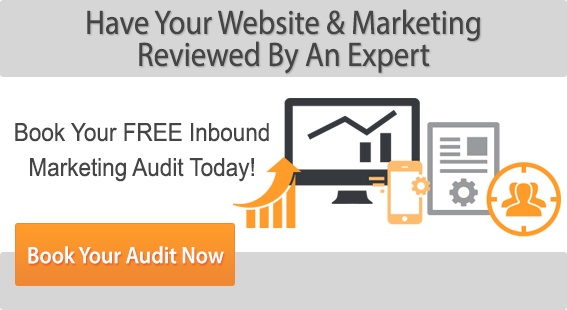What Is 'Inbound Marketing', What Does It Mean, And Why Should I Care?

The term ‘inbound marketing’ has been floating around long enough that it is well past the buzzword stage, and has now taken a prominent role in nearly every online marketing strategy. It even has its own evolving marketing niche, aptly titled “inbound marketing strategy” . So, what does its current incarnation look like, and why should you care? Let’s start with a definition.
Inbound Marketing Today
The base definition of inbound marketing has not changed. The accepted definition for inbound marketing ‘a promotional method that noninvasively promotes a brand and is aimed at organically driving the customer to the business’. Instead of reaching out to the customer, inbound marketing causes the consumer to reach out to the business. How? By satisfying a want or need.
Most often, content marketing is used in inbound marketing strategies. If you write and post blogs or videos online to your business social media accounts, you are engaging in inbound marketing. Your posts are raising your online profile, which helps you get found. Once a customer becomes engaged in your brand, it is easier to convert them into paying customers.
In contrast, outbound or ‘interruption marketing’ efforts, are those that are pressed upon consumers regardless of whether or not they want the information. Examples of outbound marketing include pop-up and print ads, television and radio commercials, and posters/billboards.
The definition of inbound marketing may not have changed, but the parameters haven’t remained static. With each new successful social media site and technological breakthrough come fresh opportunities to develop new modes of inbound marketing. Here are some specific examples of inbound marketing techniques that are used today:
- Blogging
- Opt-in email lists
- SEO
- Video
- Social media
Each of the techniques listed requires action from the consumer in order to engage. So, instead of forcing a product, brand or service onto people, inbound marketing strategies involve purely voluntary participation.
Why Should You Care?
In the UK alone, there were 5.2 million businesses in 2014, so it’s a competitive world and you need to do everything you can to stay ahead of the pack, and inbound marketing can help you do that seamlessly.
Inbound marketing is ideally suited to showcase a business, and help establish it as a reputable brand online. How? When you post value-added content, such as instructional blogs on your business website, you are presenting yourself as an industry authority. The more you do that, and the higher the quality and the more varied the content you provide, the more your readers will be convinced of your authority. That will create trust with the customer.
Once you have earned the consumer’s trust, you can move to the next step, which is to convert them into paying customers using a combination of conversion sequences implemented using marketing automation technology, and sales insight so your sales team approach potential leads at the right time and in the right way.
In addition to taking the reader further down the sales funnel, high-value content also gets shared more often, and that exposure will land you new leads and conversions. If you continue to provide ongoing quality content, consumers will develop brand loyalty, and become returning customers. So, a successful inbound marketing strategy helps yield both short-term (converting existing leads) and long-term (earning new leads through sharing and exposure) benefits.
A major factor in the success or failure of many companies is how well a business can nurture and promote its brand online. Inbound marketing is the obvious answer to that problem. However, a business also needs to watch its bottom line, which is another reason to care about inbound marketing.
Compared with outbound or interruption-based marketing, Inbound Marketing is proven to offer a far lower cost per lead. For a business that doesn’t have the budget to run nationwide TV commercials, radio adverts or billboard campaigns, Inbound Marketing can help you reach and engage with a highly targeted audience far more cost effectively.
However, if something is worth doing, it’s worth doing right. Many businesses invest lots of resources into blogging and social media and do not always see the best returns for this investment – which is why it’s worth getting an Inbound Marketing Assessment from a certified Inbound Marketing Agency to check you are on the right course, and to explore the value of getting expert help.
Article by Leanne Mordue


